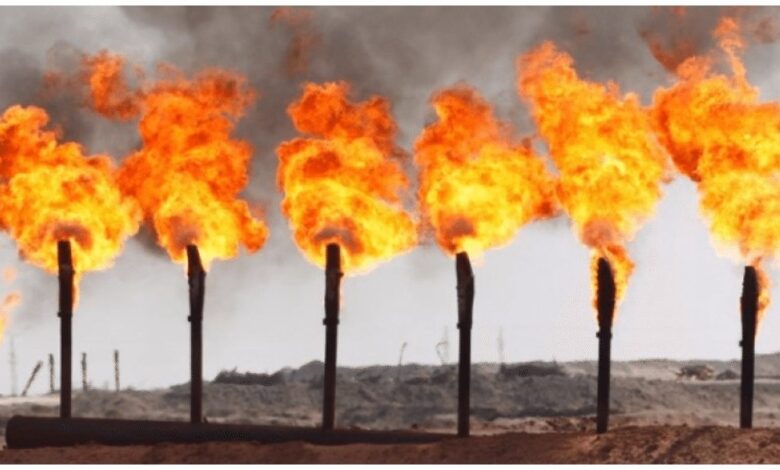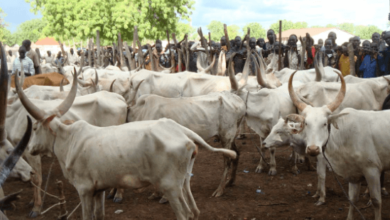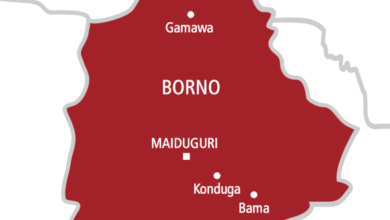Gas flaring: Nigeria dragged to ECOWAS community court of justice

The Nigerian Government has been dragged before the ECOWAS Community Court of Justice (CCJ) for “failure to enforce the prohibition of gas flaring and gas emissions… in violation of its international obligations under the human rights and environmental Treaties.”
Enabulele Esq., a Nigerian professor of public international law, filed the suit No ECW/CCJ/APP/48/25 on 22nd September 2025, on behalf of himself and the Centre for Community Law (CfCL), an NGO, as the first and second Applicants/Plaintiffs, with the Federal Republic of Nigeria as the Respondent.
Among their 16 prayers, the Applicants are seeking orders on the “Respondent to compel multinational oil companies to comply with environmental protection laws… and to “immediately put in place an adequate and effective compensation programme for victims of gas flaring,” particularly the host communities.
According to a statement by the CfCL on 25 September 2025, they are also calling for “restitution and this may take the form of reconstructing damaged or destroyed infrastructure, and restoring ecosystems and biodiversity.”
The Applicants are praying the CCJ to determine the “legality of continuous gas flaring in Nigeria in the light of the provisions of Articles 4, 5, 14, 16, and 24 of the African Charter on Human and Peoples’ Rights; Article 11 and 12 of the International Covenant on Economic, Social and Cultural Rights; Article II of the African Convention on the Conservation of Nature and Natural Resources; Article 24 of the Convention on the Rights of the Child; Article 3(1) of the United Nations Framework Convention on Climate Change; Section 22(5) and 24(2) of the Nigeria Climate Change Act (CCA); and Section 104 of the Petroleum Industry Act (PIA).”
“The second Applicant seeks to promote the realisation of the safeguards of ECOWAS laws as guaranteed in Article 4(g) of the 1993 Revised Treaty of ECOWAS, through the various highlighted Articles,” the CfCL statement said. “The Respondent is a major oil producer. In the course of producing oil, gas is flared in its Abia, Akwa Ibom, Anambra, Bayelsa, Delta, Edo, Imo, Kaduna, Lagos, Rivers States, and in various Local Government Areas within the country.”
It added: “The current penalties for gas flaring in Nigeria officially stand at US$2 per 1000 standard cubic feet. From this penalty regime, the NUPRC (Nigerian Upstream Petroleum Regulatory Commission), the Respondent’s agency responsible for collecting and managing the payments, received the sums of *98,548,237,009.00 Naira; 70,422,698,758.57 Naira; 140,542,799,981.78 Naira; and 391,264,227,593.46 Naira for 2021, 2022, 2023 and 2024, respectively (about 1,500 Naira=1US$).*
Continuing, the statement said “the penalties, notwithstanding, Nigeria, through its agencies (public, private and government entities) is notoriously known for its constant pollution through gas emissions and flaring, which has great health and environmental impacts. This contributes to climate change, poses immediate and far-reaching threats to people and communities and has implications for the full enjoyment of human rights.”
The Applicants argue that “despite the existing statutory and treaty obligations, gas flaring continues in Nigeria, causing severe environmental pollution, health hazards, and destruction of livelihoods, especially in oil-producing communities,” adding that “the Respondent’s inaction in enforcing its own domestic laws (CCA – Climate Change Act 2021 and PIA – Petroleum Industry Act 2021), and meeting its international commitments, reflect a failure to regulate harmful practices under its control.”
In general, the Applicants are seeking:
1. A Declaration that the Respondent State has a duty of performance under which the breach by a State of its international obligations does not extinguish its underlying duty of performance. States have a continuing duty to perform their obligations despite their breaches thereof.
2. A Declaration that the failure of the Respondent to implement the provisions of the Climate Change Act 2021 and to enforce the prohibitions on gas flaring/emissions under the Petroleum Industry Act 2021 constitutes a violation of the citizens’ fundamental rights to life, health, dignity, environment and work as guaranteed under regional and international human rights instruments.
3. A Declaration that by reason of relying on the use of penalty as a deterrent for gas flaring, the Nigerian State violates its obligations under human rights and environmental treaties to which it is a party.
4. A Declaration that the host communities alone are entitled to the penalties recovered from gas flaring.
5. An order directing the Respondent to immediately commission an independent investigation into the number of active gas flaring sites in Nigeria; the companies involved; the quantity of gas flared and the actual amount of penalties charged, due and or collected.
6. An order directing the Respondent to publicly acknowledge its responsibility for the violations referred to in the Application and publicly apologise, in particular to the victims of the gas flaring and for the consequences thereof.
7. An order directing the Respondent to take immediate and effective measures to fully implement the Climate Change Act 2021, and to enforce the anti-gas flaring provisions of the Petroleum Industry Act 2021, including the imposition of penalties and regulatory sanctions against defaulting operators.
8. An order directing the Respondent to immediately take measures to prepare a comprehensive national study on the health and environmental effects of gas flaring in the short, medium and long term; ensure that the study is widely disseminated and inform the public of measures taken to address the short, medium and long-term negative effects of gas flaring on human health and the environment. And to ensure the provision of medical assistance to victims, including treatment of new symptoms, and in the long term, illnesses to victims;
9. An order directing the Respondent to compel multinational oil companies to comply with environmental protection laws and build a gas infrastructure to preserve or store wasted gas for industrial or domestic uses;
10. An order directing the Respondent to immediately put in place an adequate and effective compensation programme for victims of gas flaring.
11. An order directing the Respondent to ensure a regular and constant monitoring of multinational oil companies’ activities in terms of health, and that defaulting companies should be fined exorbitantly to deter them from continuing to engage in gas flaring without investing in redirecting the gas for other uses.
12. An order directing the Respondent to provide for the relocation of the communities (in) proximity to the gas flare site or location less than 4km, to save human life and well-being, and to ensure no new gas flaring sites are opened.
13. An order directing the Respondent to publish verifiable updates on the progress made towards the achievement of the 2030 gas flaring cessation date by employing all means at its disposal to reduce the GHG emissions by ending gas flaring, including but not limited to mandating multinational oil companies to re-inject associated natural gas into the ground;
14. An order directing the Respondent to make reparation by way of the remediation of the environment and the remission of the penalties to host communities.
15. An order directing the Respondent to make restitution, and this may take the form of reconstructing damaged or destroyed infrastructure, restoring ecosystems and biodiversity, and,
16. Such further orders the Honourable Court may deem fit to make in the circumstances of this suit.
The NUPRC’s latest report put Nigeria’s crude oil and gas reserves at a record high of 37.24 billion barrels and 210.5 trillion cubic feet, with the Reserves Life Index of 64 years and 93 years for oil and gas, respectively.
Oil and Gas sector accounts for more than 56% of Nigeria’s annual budget, and according to the Nigeria Gas Flare Tracker report, gas valued at US$1.9bn was flared in the country between 2020 and 2024.
Post Views: 4





